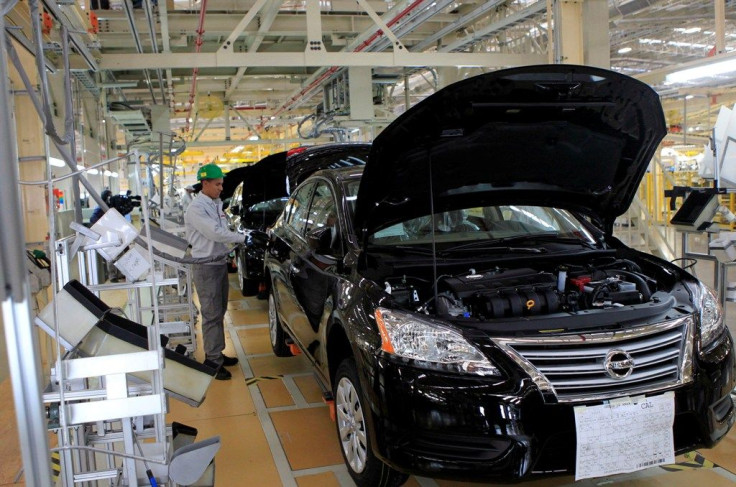Nissan Will Make Over 1M Cars Per Year In Mexico After Infiniti Production Begins There In 2017

Mexico City used to be filled with green Volkswagen Beetle taxis. But it’s been over a decade since Volkswagen Group retired the so-called Type 1 Beetle, and the once-ubiquitous green Bugs of the country’s Federal District are rapidly being replaced by green Nissan Sentra sedans. In fact, today Mexican consumers are more likely to own a Nissan than any other brand.
Now, Japan’s third-largest automaker is turning Mexico into one of its key hubs for the production and export of its cars, Airton Cousseau, the head of Nissan’s Mexican operations, said.
“Nissan Mexicana is considered the benchmark for the brand in the world,” Cousseau told the official Mexican news agency Notimex in an interview Sunday. “It’s No. 1 in production [in Mexico] and the first in exports, more than in Japan.”
Nissan is working with German automaker Daimler AG (owner of Mercedes-Benz) on a $1.4 billion plant in northern Aguascalientes state that will boost the company’s production of vehicles in Mexico from about 800,000 to 1.1 million by the time the plant is operational in 2017, according to El Financiero newspaper.
Nissan hit production records in both the United States and Mexico last year. The company made nearly 948,000 vehicles at its plants in Smyrna, Tenn., and Canton, Miss., a nearly 20 percent increase from 2014, according to Nissan North America data. Nissan production in Mexico increased nearly 19 percent in the same period of time.
The plant will employ 5,700 workers and will make Infiniti luxury cars. Daimler will make Mercedes-Benz vehicles there by 2018. The vehicles’ will be exported to foreign markets including Colombia, Brazil and the Middle East.
Nissan currently claims about 25 percent of total Mexican vehicle production. In January, Nissan held five of the top 10 bestselling cars, according to the Mexican Automotive Industry Association. The company routinely claims five or six of the top monthly slots, competing with Chevrolet's Aveo and Spark and Volkswagen’s Vento and Jetta.
Last year, Nissan topped the list in both Mexican new-auto sales and vehicle exports. It shipped about 538,000 of its vehicles from Mexico to other markets and sold the most new cars in the country, at 267,000 units. Ideally situated next to the world’s second-largest auto market, and harboring a dozen free trade agreements with other countries, Mexico has emerged as a major automotive manufacturing center. Increased interest among luxury carmakers, including Nissan’s Infiniti, Mercedes-Benz and BMW, is an indication of the maturation of the country’s automotive-manufacturing skill set.
Mexico hit a record in production and exports last year, most likely due to the lower wages paid to its factory workers compared with the U.S. and Canada and trade pacts that drop import tariffs, and it is expected to hit another high in 2015. Mexico produced 3.2 million automobiles in 2014, a 10 percent jump from the previous year. It exported 2.6 million of these vehicles. About four out of five of these cars were sent to the United States, which means the sector is still highly dependent on the U.S. market.
© Copyright IBTimes 2025. All rights reserved.





















